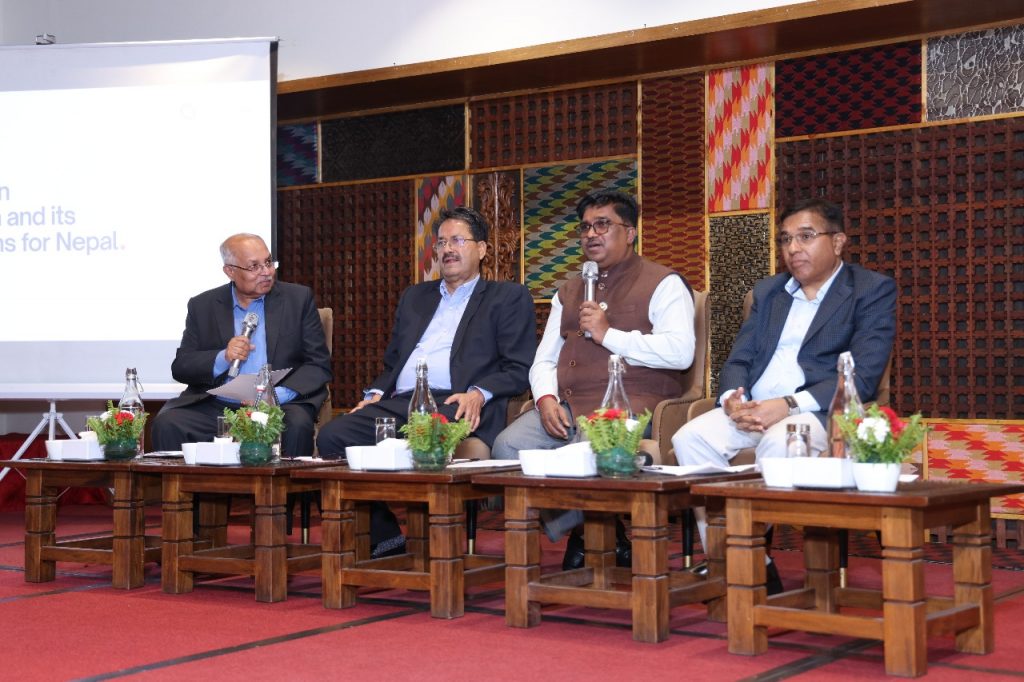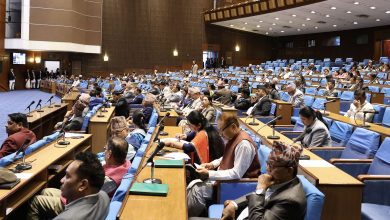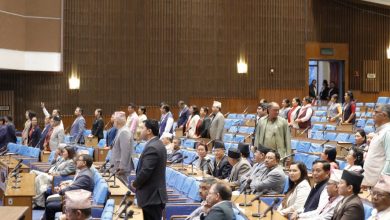CSEIF seminar discusses terrorism threats to Nepal

June 3, Kathmandu: The Centre for Social Innovation and Foreign Policy (CSEIF) on Monday held a seminar on “Terrorism in South Asia and its Implications for Nepal” in Kathmandu. Policymakers, security experts, and academics discussed Nepal’s vulnerabilities to terrorism and the need for stronger security measures.
CESIF Chairperson Former Ambassador Vijay Kant Karna highlighted terrorism risks in South Asia, including Nepal’s potential as a transit point for terrorists and threats to its migrant workers.
The seminar featured two panels. The first focused on policy responses, stressing better immigration and intelligence systems.
The first panel focused on policy responses to terrorism. Speakers identified weaknesses in Nepal’s immigration and intelligence systems as key vulnerabilities.
N.P. Saud, Member of Parliament and former Foreign Minister, said, “Nepal must address systemic flaws in immigration and security to counter terrorism effectively.”
Former National Security Advisor Shanker Das Bairagi emphasised, “Institutional reforms are critical to strengthen Nepal’s deterrence capabilities.” The panel urged better coordination between agencies, stronger legal frameworks, and adherence to international anti-terrorism conventions to boost Nepal’s credibility and response.
The second panel addressed Nepal’s security vulnerabilities and their impact on citizens. Maj. Gen. (Retd.) Binoj Basnyat highlighted how technology, proxy conflicts, and regional power rivalries reshape South Asian threats.
He stated, “Nepal’s reliance on soft diplomacy lacks the proactive measures needed for transnational risks.” Speakers noted that Nepali migrants face dangers abroad, underscoring the need for protection. Apekshya Shah, an academic, called for research and education to counter radicalisation and misinformation.
The panel emphasised the importance of regional cooperation with South Asian nations and a strategic focus on security to safeguard Nepal’s interests.
Speakers agreed Nepal must prioritise national security through robust policies, better intelligence, and partnerships with regional and global counterparts. They emphasised building capacity to address terrorism while maintaining Nepal’s commitments to international standards.









Comments